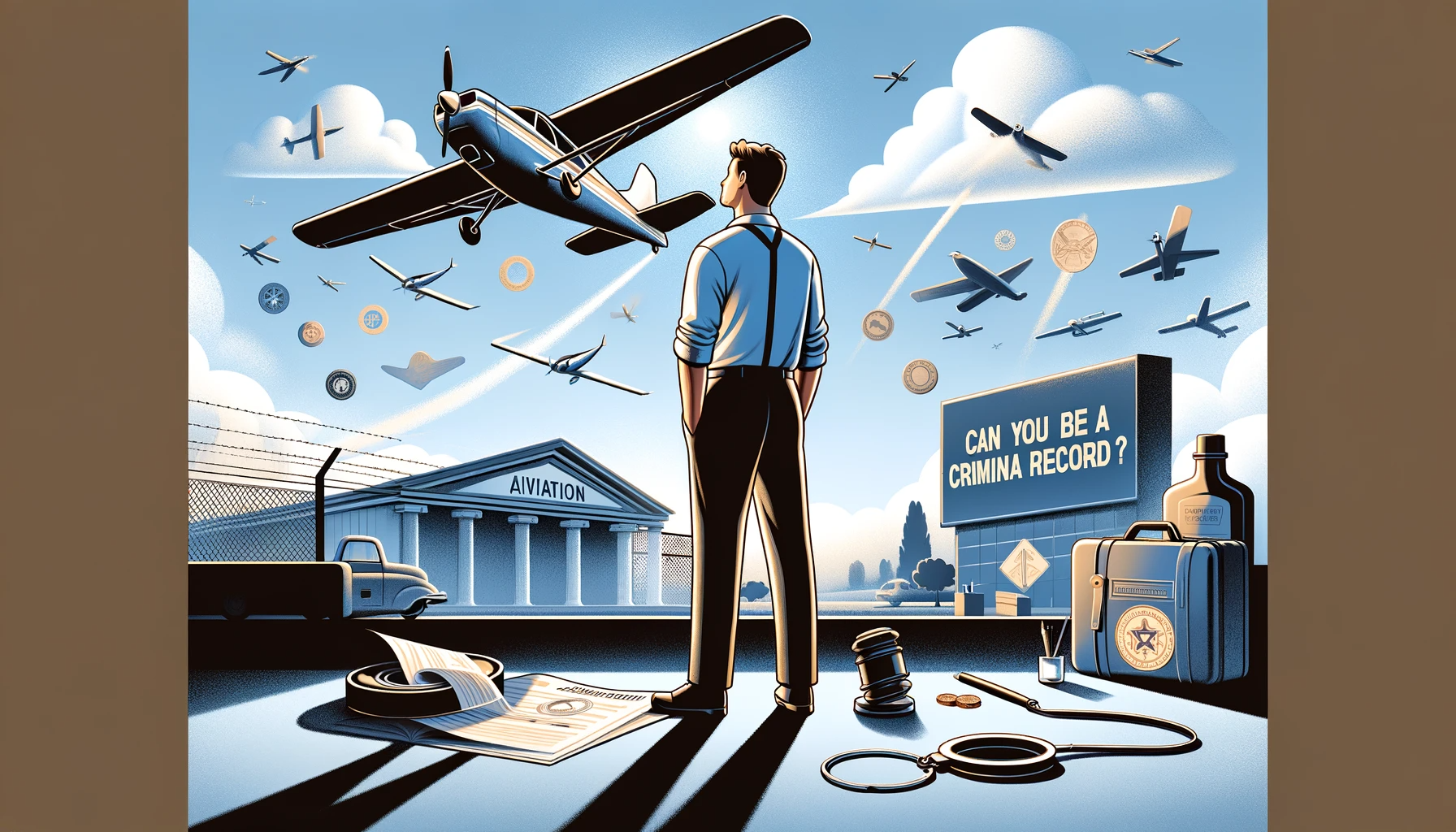Hello to all the aspiring pilots out there! Today, we’re addressing a critical question that may be hovering in your minds: “Can you be a pilot with a criminal record?” This query is not just about meeting the legal criteria but also about understanding how a criminal record can impact your aviation career aspirations. Let’s navigate through this topic with an objective lens and a burst of clarity.
Understanding the Aviation Industry’s Standards
The aviation industry is renowned for its stringent safety and security standards, which extend to the evaluation of a pilot’s background.
Safety and Security at the Forefront:
- FAA Regulations: The Federal Aviation Administration (FAA) sets forth strict guidelines for pilot licensing, including background checks.
- Security Clearance: Pilots often require security clearance, especially when it involves flying commercial or passenger aircraft.
The Impact of a Criminal Record on Becoming a Pilot
A criminal record can be a significant hurdle in your journey to becoming a pilot, but it’s not always a deal-breaker.
Factors That Come Into Play:
- Type and Severity of the Offense: Certain offenses, particularly those related to substance abuse, violence, or fraud, are taken very seriously.
- Recency of the Conviction: Older convictions may be given less weight than recent ones.
- Rehabilitation and Conduct Post-Conviction: Demonstrating rehabilitation and responsible behavior following a conviction is crucial.
Navigating FAA Regulations and Criminal Records
The FAA’s stance on criminal records is specific, with certain offenses potentially disqualifying candidates from obtaining a pilot’s license.
Key FAA Concerns:
- Drug and Alcohol Offenses: These are particularly scrutinized given their direct impact on aviation safety.
- Dishonesty-Related Convictions: Offenses like fraud can raise questions about a candidate’s integrity.
- TSA Review: The Transportation Security Administration also plays a role in the assessment of a pilot’s background.
The Licensing Process: What to Expect
Aspiring pilots must understand the licensing process and how a criminal record might affect it.
Steps in the Licensing Process:
- Medical Examination: Includes assessing the candidate’s physical and mental health.
- Background Check: A thorough review of criminal history.
- Flight Training and Exams: Comprehensive training followed by rigorous exams.
Opportunities in Private and Commercial Aviation
The impact of a criminal record may vary between private and commercial aviation sectors.
Exploring Different Avenues:
- Commercial Airlines: Typically have stricter standards and more rigorous background checks.
- Private and Charter Flights: May offer more leeway, depending on the company’s policies and the nature of the flights.
Rehabilitation and Second Chances
The aviation industry recognizes the importance of rehabilitation and offers second chances under certain conditions.
Pathways to Redemption:
- Rehabilitation Programs: Participation in these programs can be a positive factor.
- Character References and Personal Growth: Demonstrating personal development and responsibility can support your case.
Legal Assistance and Advocacy
Navigating the complexities of becoming a pilot with a criminal record may require professional legal advice.
Seeking Expert Guidance:
- Aviation Law Experts: Lawyers specializing in aviation law can provide invaluable assistance.
- Advocacy Groups: Organizations that support individuals with criminal records in rebuilding their careers can be resourceful.
The Role of Continuous Learning and Development
Continuous learning and professional development are key for aspiring pilots, especially those with a criminal record.
Building a Strong Profile:
- Additional Certifications: Earning additional aviation certifications can bolster your qualifications.
- Staying Updated with Industry Trends: Keeping abreast of the latest developments in aviation technology and regulations is beneficial.
Conclusion: Charting Your Flight Path
In conclusion, while having a criminal record can present challenges in becoming a pilot, it doesn’t necessarily mean the end of your aviation dreams. Understanding the legal landscape, demonstrating rehabilitation, and continuously building your skills are crucial steps in charting your flight path.
If you’re aspiring to soar the skies but are concerned about your past, remember that the journey might be turbulent, but with the right approach and guidance, the sky’s the limit!









Leave a Reply